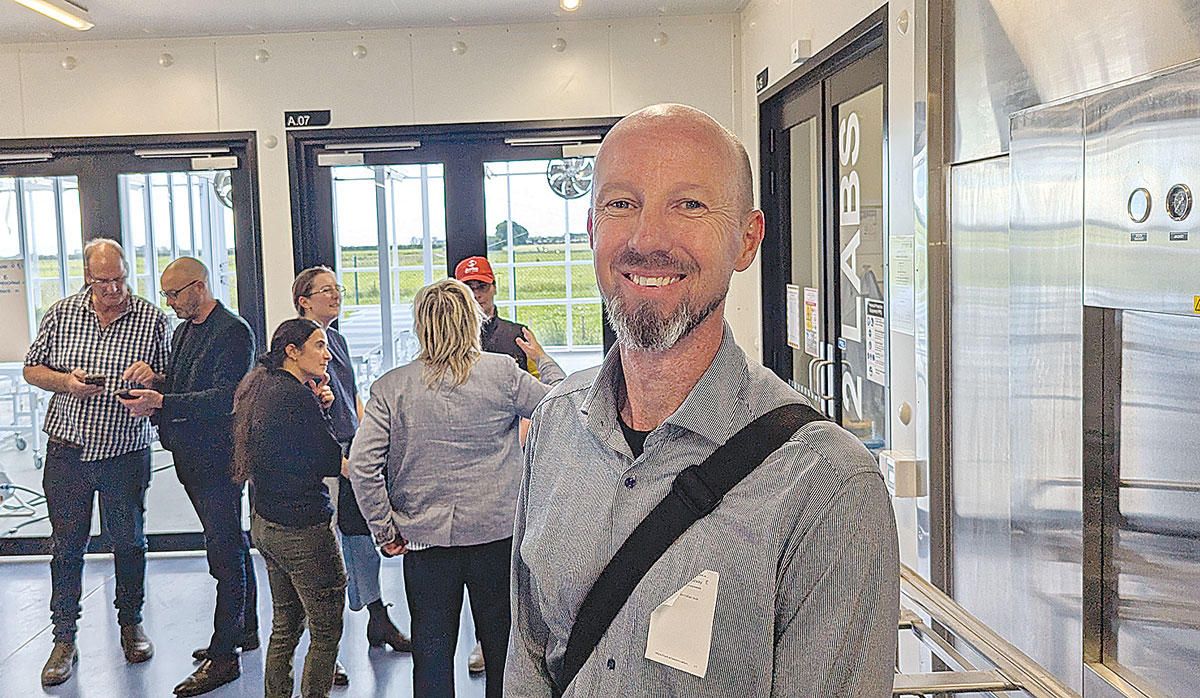NZ scientists make breakthrough in Facial Eczema research
A significant breakthrough in understanding facial eczema (FE) in livestock brings New Zealand closer to reducing the disease’s devastating impact on farmers, animals, and rural communities.
The Canterbury Growers Society will soon be seeking sponsorship for a new regional young grower competition, after an absence of several years.
While other regions – Pukekohe, Central Otago, Hawke’s Bay, Nelson, Gisborne and Bay of Plenty – have run regular competitions with winners competing for a national title, Canterbury has not.
Restarting the regional competition is part of a plan to reinvigorate the group by the new chairman, Rob Lindsay.
The group, with about 250 on its base emailing list out of an estimated 500 fruit and vegetable growers across the province, is seeking ways to re-engage with growers and ensure they know where they can turn to for support and information.
Lindsay says Canterbury Growers has been a functioning society for nearly 100 years, existing to support growers and ensure that people who need help in an emergency, receive it. But restarting the competition is the group’s “succession plan”.
“It brings growers together. It brings young people along,” says Lindsay.
“Young people are the future of this industry, so if we can help them, teach them, mentor them, support them, that’s a good thing.”
Lindsay says they are now talking to various stakeholders to decide when to run it, to best fit in with various members’ growing calendars, but it would probably be in May or June.
“In Canterbury, we have a large area under potatoes in Mid and South Canterbury. We represent 20% of the nation’s onion production and we have a lot of market gardens in North Middle and South Canterbury.
“And there’s some fruit starting to be grown again, too. We’ve got some modern format orchards being put in.”
Lindsay is based at Clarkville, just north of Christchurch, where he grows telegraph cucumbers hydroponically, with about 1.6ha under cover. He has been the group chair for about two months.
 |
|---|
|
Canterbury Growers Society chair Rob Lindsay. |
New AgResearch Glasshouse
One of Rob Lindsay’s first acts as chair of the Canterbury Growers group was to host a meeting of the executive in conjunction with a visit by members to AgResearch’s new glasshouse facility at Lincoln.
The facility is unique in New Zealand, being the only one where scientists can conduct secure, contained research on microorganisms, insects and plants all under one roof.
It is expected to modernise agricultural research by providing a contained, efficient environment for multi-trophic studies—research that examines the complex interactions among multiple organisms within an ecosystem.
The $11 million, 402 square metre facility is certified to PC2 (Physical Containment 2) standards, with spaces kept at low atmospheric pressure so air only goes in through any opening and only goes out through high-quality filtration.
AgResearch says that ensures that every aspect of an experiment, from fumigation protocols to pollen sterilisation, is meticulously controlled, reducing risks, speeding up research, and reducing costs.
“No other research facility in New Zealand combines these capabilities in a single, purpose-built environment,” says research associate and glasshouse manager, Sarah Jackman. “That’s what makes it so exciting.”
The facility can simulate complex scenarios involving multiple organisms. For example, scientists can study gene-edited ryegrass interacting with an exotic insect. Unlike overseas studies, which may not address New Zealand’s unique flora and fauna, it allows for research specifically tailored to New Zealand’s agricultural ecosystem.
Other advanced features include an infrared-capable lighting system, which simulates a full spectrum of sunlight, and a specialised water filtration system.
Jackman expects research to begin on Fall Army worm, Green Vegetable Beetle, Porina, and the Coconut Rhinoceros Beetle, which is a major pest in the Pacific.
AgResearch is inviting expressions of interest from potential clients interested in research partnerships.
The World Wide Sires National All Day Breeds Best Youth Camp Best All Rounder plaudit has become family affair, with 2026 Paramount Cup winner Holly Williams following in her sister Zara's footsteps.
DairyNZ is giving New Zealand farmers a unique opportunity to gain hands-on governance and leadership experience within the dairy sector.
Herd improvement company LIC has posted a 5.2% lift in half-year revenue, thanks to increasing demand for genetics.
According to the latest Fresh Produce Trend Report from United Fresh, 2026 will be a year where fruit and vegetables are shaped by cost pressures, rapid digital adoption, and a renewed focus on wellbeing at home.
The Roar is a highlight of the game hunting calendar in New Zealand, with thousands of hunters set to head for the hills to hunt male stags during March and April.
OPINION: The past few weeks have been tough on farms across the North Island: floods and storms have caused damage and disruption to families and businesses.

OPINION: Meanwhile, red blooded Northland politician Matua Shane Jones has provided one of the most telling quotes of the year…
OPINION: This old mutt has been around for a few years now and it seems these ‘once in 100-year’ weather…